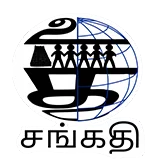
Potential taxpayers number around 10 million; but only 500,000 tax files at IRD
by Hiran H. Senewiratne
The government should have a digitized information system to gather information on every local individual’s income and wealth, as in developed countries, to create an efficient and effective tax collection system, Professor of Economics, University of Colombo Sirimal Abeyratne said.
“The IMF bailout is not the only option but it will carry some positive results because it comes with around three or four billion dollars of financial assistance with a program, so that we have a commitment to follow it, Abeyratne told The Island Financial Review.
Abeyratne added: “There would be an improvement in the international perception about the Sri Lankan economy and its future if we adhere to the program. But on top of that, fiscal consolidation and managing the balance of the payments system are important factors at this juncture.
“While attracting foreign direct investments to the country, an effective tax collection method should be developed by setting up and introducing a stabilized information system in the country.
“At present although the total adult population of the country is between 10 million and 12 million, the number of tax files registered at the Inland Revenue Department is around 500,000, which incurs a loss of billion of rupees to government coffers.
“Around half of our taxes should come directly. Direct taxes are low because many people are not paying taxes due to the absence of a digitalized tax information system, to collect data on the income and wealth of every individual.
“The government or the tax authorities do not know people’s income levels. We haven’t established a proper system to get information about people’s income and wealth. If there is such a system many would find it difficult to explain the sources of their income and wealth and that might be the reason why there is no such system. Due to this the government cannot raise direct taxes and consequently the government resorts to more and more indirect taxes.
“The government should also find ways and means to cut down unnecessary government expenditure, which problem has also gone unaddressed by the relevant authorities. If the government does not address these issues soon we will not be able to face future economic challenges.”

